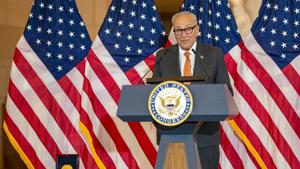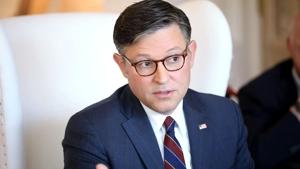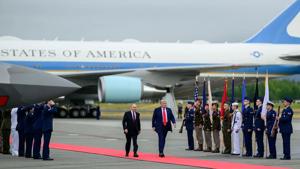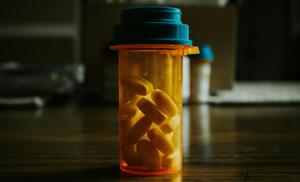Trump orders drug stockpile, increased manufacturing
President Donald Trump ordered administration officials to draw up a list of 26 key drugs to develop a stockpile in the United States.
His executive order provides for a six month supply of the active pharmaceutical ingredients in each drug to be added to the Strategic Active Pharmaceutical Reserve.
“Stockpiling APIs is advantageous as APIs are generally lower-cost and have longer shelf lives than the finished drug products they make,” Trump’s order reads.
“Filling the SAPIR will also insulate the United States from the concentration of foreign, sometimes adversary, nations in the world-wide supply of the Key Starting Materials used to make APIs.”
The first Trump administration established SAPIR to serve as a national stockpile of ingredients for the production of essential medicines. SAPIR is overseen by the Office of the Assistant Secretary for Preparedness and Response.
In President Joe Biden’s administration, ASPR curated a list of 86 medicines deemed “critically needed for acute patient care.”
The Biden administration list included fentanyl for pain relief, HIV treatments like Bictegravir and regular insulin.
Trump’s directive gives ASPR 30 days to create a reduced drug list from the Biden administration’s with a focus on increasing domestic curation of the drugs.
The order follows the U.S. Food and Drug Administration’s announcement last week of the FDA Precheck program which is designed to expedite the drug manufacturing approval processes.
In the announcement, the FDA said 11% of active pharmaceutical ingredients are produced by U.S. manufacturers.
To increase production, the FDA will begin to offer more frequent communication between regulatory agencies and manufacturers in the development of domestic production sites.
“The FDA PreCheck initiative is one of many steps FDA is taking that can help reverse America’s reliance on foreign drug manufacturing and ensure that Americans have a resilient, strong, and domestic drug supply,” said FDA Commissioner Marty Makary.
Trump has also increased pressure on pharmaceutical companies to invest in more domestic production over the past few months.
In July, Trump sent letters to 18 pharmaceutical companies, including Pfizer and Johnson and Johnson, demanding they outline steps to bring down prices of prescription drugs in the United States.
He has also touted billions of dollars in investments from pharmaceutical companies over the last six months including $500 billion from Johnson and Johnson, $50 billion from AstraZeneca and $10 billion from Abbvie.
In what appears to be aligned with the Trump administration’s priorities, Abbvie confirmed part of its investment will go to a $195 million site in North Chicago dedicated to producing active pharmaceutical ingredients in the U.S.
“This is an important step to maintain U.S. leadership in pharmaceutical innovation and deliver next-generation medicines that make a remarkable impact on patients’ lives,” said Robert Michael, CEO of Abbvie.
Latest News Stories

Trump says U.S. won’t survive without tariffs, businesses say they won’t survive with them

Nonprofit in tariff challenge case hits back at Trump

Hanover Park, Illinois, police officer arrested by immigration enforcement

Florida sues California, Washington for licensing immigrants

DOJ brings first ever Antifa terrorism charges in Texas ICE attack

Many agree with McMahon that government shutdown proves DoEd is unnecessary

Colorado aids federal workers as shutdown hits week three

Democrats tank bipartisan bill to fund DOD in midst of government shutdown

U.S. Chamber of Commerce sues Trump over H-1B visa fee

Senate Republicans offer govt funding olive branch; Democrats refuse it

Trump, Putin agree to meet in Hungary to discuss peace

WATCH: Pritzker says he’s lucky winning $1.4M gambling; GOP say he’s out of touch














